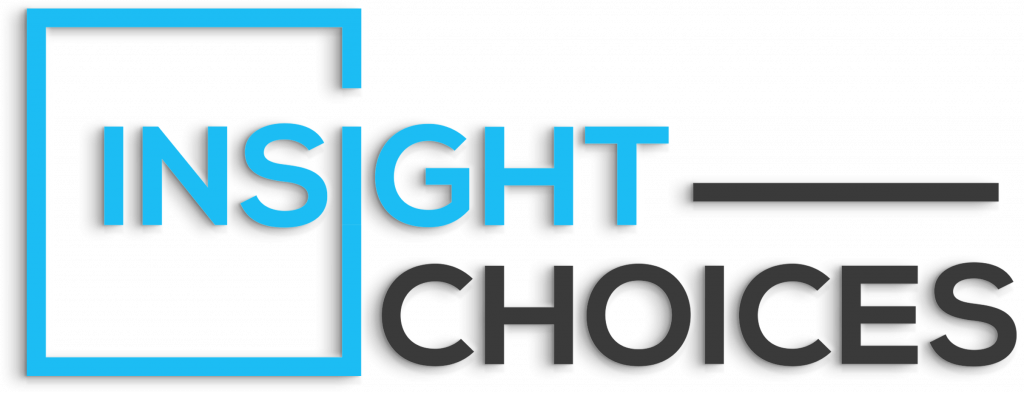Attention Deficit Hyperactivity Disorder (ADHD) is often perceived as a condition affecting children, but it doesn’t simply disappear as people grow older. A significant number of adults continue to experience the symptoms of ADHD, which can manifest as difficulties with focus, impulsivity, and time management, among others. Adult attention deficit hyperactivity disorder can impact relationships, work performance, and overall quality of life. While medication is commonly prescribed to help manage symptoms, various non-medication strategies can provide relief and enable adults with ADHD to thrive. Unfold the five effective, non-medication strategies for managing adult ADHD and provide practical insights on incorporating them into daily life.
It is essential to note that ADHD treatment for adults may require a combination of approaches. While non-medication strategies are valuable, there may be times when medical treatment becomes necessary. If you struggle with managing symptoms, don’t hesitate to seek professional help from Insight Choices. It is always better together to advocate for finer ADHD recognition in women and ensure they get the support they deserve.
The Role of Exercise and Outdoor Activities
How Cardio and Other Exercises Improve ADHD Symptoms
Exercise is a powerful tool for managing ADHD symptoms. Regular physical activity has been shown to improve brain function, boost dopamine levels, and enhance focus and attention. For adults with ADHD, cardio exercises like running, cycling, or swimming can help increase the release of neurotransmitters that regulate attention and behavior. This can lead to improved concentration, better emotional regulation, and reduced impulsivity—key challenges for individuals with ADHD.
Benefits of Outdoor Activities and “Green Time”
In addition to structured exercise, spending time outdoors can be particularly beneficial. Research has shown that exposure to nature, often referred to as “green time,” has a calming effect on the brain and helps to reduce symptoms of ADHD. Whether walking in the park, hiking in the woods, or simply sitting in a garden, outdoor activities can help improve mood, lower stress levels, and enhance cognitive function.
Practical Ways to Incorporate Exercise and Nature Into Daily Life
For adults with ADHD, it can be difficult to maintain a consistent exercise routine. However, finding ways to make physical activity enjoyable and easy to incorporate into daily life is crucial. Start by setting small, achievable goals, such as taking a 20-minute walk after work or cycling on weekends. Joining group activities like a fitness class or a hiking group can add accountability and social interaction, making it more likely to stick to an exercise routine. Consider integrating outdoor activities, such as gardening or meeting outdoors when possible, to enjoy nature while staying active.
Improving Sleep for Better Focus
Common Sleep Challenges in ADHD
Sleep problems are common among individuals with ADHD. People with ADHD often experience difficulties falling asleep, staying asleep, or waking up feeling rested. The brain’s inability to regulate attention and impulsivity can extend to regulating sleep patterns. Poor sleep can exacerbate ADHD symptoms, leading to greater difficulties with focus, memory, and emotional regulation.
Tips for Regulating Sleep
Improving sleep hygiene is essential for managing ADHD symptoms. Here are several tips for getting better rest:
- Light Exposure: Regulate exposure to light throughout the day. In the morning, expose yourself to natural light to help your body’s internal clock (circadian rhythm). Avoid bright screens in the evening, as blue light can interfere with your ability to fall asleep.
- Reduce Screen Time: Limit screen time at least one hour before bed. The light emitted from devices like phones, tablets, and TVs disrupts the production of melatonin, a hormone that helps regulate sleep.
- Create a Bedtime Routine: Establish a relaxing pre-sleep routine. Calming activities such as reading, meditating, or a warm bath can signal your body that it is time to wind down.
- Keep a Consistent Sleep Schedule: Go to bed and wake up simultaneously every day, even on weekends. Consistency is key to regulating your sleep cycle and improving overall sleep quality.
By improving your sleep patterns, you’ll find that your ability to focus and remain alert during the day will greatly improve, making it easier to manage ADHD symptoms.
Productivity Strategies That Work
Why Traditional Methods May Not Help Adults With ADHD
Traditional productivity methods, such as to-do lists or rigid time management techniques, are often ineffective for adults with ADHD. The tendency to procrastinate, get distracted, or struggle with completing tasks makes these methods difficult to follow through on. However, there are ADHD-friendly techniques that can help manage time and tasks more efficiently.
Effective ADHD-Friendly Techniques
- Starting Small: Breaking tasks into smaller, more manageable steps is a great way to avoid feeling overwhelmed. Begin with the easiest or most enjoyable task to build momentum and then gradually work up to more challenging tasks.
- Using Timers: Setting a timer for short, focused intervals (often called the Pomodoro technique) can be extremely beneficial. Work for 25 minutes, followed by a 5-minute break. This technique allows for bursts of concentration while preventing burnout.
- Body Doubling for Accountability: For many individuals with ADHD, working alongside others (even virtually) can help maintain focus and motivation. This is known as body doubling. The presence of another person can keep you on track and reduce distractions.
- Task Management Tools: Leverage digital tools and reminders to stay organized. Use apps like Google Keep, Todoist, or Trello to set reminders, make checklists, and visualize tasks. Visual cues, such as post-it notes or whiteboards, can also be effective in keeping important tasks front and center.
- Home Organization: A cluttered environment can contribute to a cluttered mind, making it harder to focus. Keep your living and working spaces organized, using storage solutions to reduce distractions and promote productivity.
Nutrition and ADHD Management
The Impact of Diet on ADHD Symptoms
Nutrition plays a critical role in managing ADHD symptoms. There is growing evidence suggesting that certain foods and nutrients can influence brain function and help alleviate common ADHD symptoms like inattention, impulsivity, and hyperactivity. On the flip side, poor dietary choices can worsen ADHD symptoms, leading to irritability and mood swings.
Nutrient Deficiencies Linked to ADHD
Several nutrient deficiencies, including omega-3 fatty acids, iron, zinc, and magnesium, have been linked to ADHD. Low levels of these nutrients can negatively affect neurotransmitter function, leading to worsened ADHD symptoms. Maintaining a balanced and nutrient-rich diet can help support better brain function and emotional regulation.
Diet Recommendations
- Mediterranean Diet: This diet emphasizes whole foods like fruits, vegetables, nuts, seeds, and lean proteins. It is rich in omega-3 fatty acids, which have been shown to improve brain function and reduce ADHD symptoms.
- DASH Diet: The Dietary Approaches to Stop Hypertension (DASH) diet focuses on reducing sodium intake and increasing the consumption of fruits, vegetables, and whole grains. It can support overall brain health and stability.
- Omega-3 Intake: Omega-3 fatty acids, found in fish like salmon and sardines, walnuts, and flaxseeds, are particularly beneficial for those with ADHD. They help improve focus and cognitive function.
Incorporating a nutrient-dense diet can help support ADHD management and reduce reliance on medications.
Psychotherapy and Support Systems
How Therapy Helps with Coping Strategies and Emotional Regulation
Therapy, particularly cognitive behavioral therapy (CBT), is an essential tool for managing ADHD. CBT focuses on helping individuals identify and modify negative thought patterns and behaviors. For adults with ADHD, therapy can teach coping strategies to manage impulsivity, improve focus, and regulate emotions.
The Role of Behavioral Therapy in Managing ADHD Behaviors
Behavioral therapy targets specific ADHD symptoms by reinforcing positive behaviors and reducing negative ones. By working with a therapist, adults with ADHD can develop practical strategies to manage everyday challenges, such as time management and organization.
Support Groups and ADHD Coaching for Practical Guidance
In addition to therapy, joining support groups or seeking ADHD coaching can provide practical guidance and emotional support. These resources offer valuable tools and a sense of community, making it easier for adults with ADHD to share experiences, challenges, and successes.
Conclusion
Managing adult ADHD requires a multifaceted approach. While medication may be necessary for some individuals, many adults with ADHD can benefit significantly from non-medication strategies like exercise, sleep regulation, productivity techniques, nutrition, and therapy. The key to success is experimenting with different strategies to find the best for you. Remember, seeking professional help from Insight Choices can provide the expert guidance you need to navigate ADHD treatment and ensure you get the support you deserve.
As you explore these strategies, take small, manageable steps toward improvement. It’s important to remain patient with yourself and stay committed to your well-being.
Start Improving Your ADHD Management Now!
Managing ADHD without medication is possible, and with the right strategies, you can improve your focus, productivity, and overall well-being. Don’t hesitate to contact Insight Choices for professional guidance and support tailored to your unique needs. Together, we can find the best approach to help you succeed. Contact us now to start your journey toward better ADHD management!
FAQs
What are the most effective non-medication strategies for managing adult ADHD?
Exercise, sleep regulation, productivity techniques like timers, and therapy are all highly effective non-medication strategies. It’s essential to find what works best for you.
How does regular exercise help improve ADHD symptoms in adults?
Exercise boosts dopamine and other neurotransmitters in the brain, improving focus and emotional regulation and reducing impulsivity, all of which are key challenges for adults with ADHD.
What sleep habits can support better focus and energy levels for adults with ADHD?
Creating a consistent bedtime routine, regulating light exposure, and reducing screen time can help improve sleep quality and enhance focus and energy levels.
How can productivity techniques like timers and body doubling benefit adults with ADHD?
Timers help create a sense of urgency and structure, while body doubling provides accountability, helping individuals stay on task and reduce distractions.
What role does nutrition play in ADHD symptom management, and which foods are most beneficial?
A nutrient-rich diet, including omega-3 fatty acids, supports brain function and reduces ADHD symptoms. The Mediterranean and DASH diets are both excellent choices.

Dr. Chang is a highly respected psychiatrist with extensive experience serving patients in the greater Los Angeles area. With a distinguished background in psychiatry, he has dedicated his career to advancing mental health care through both clinical practice and academic contributions.

